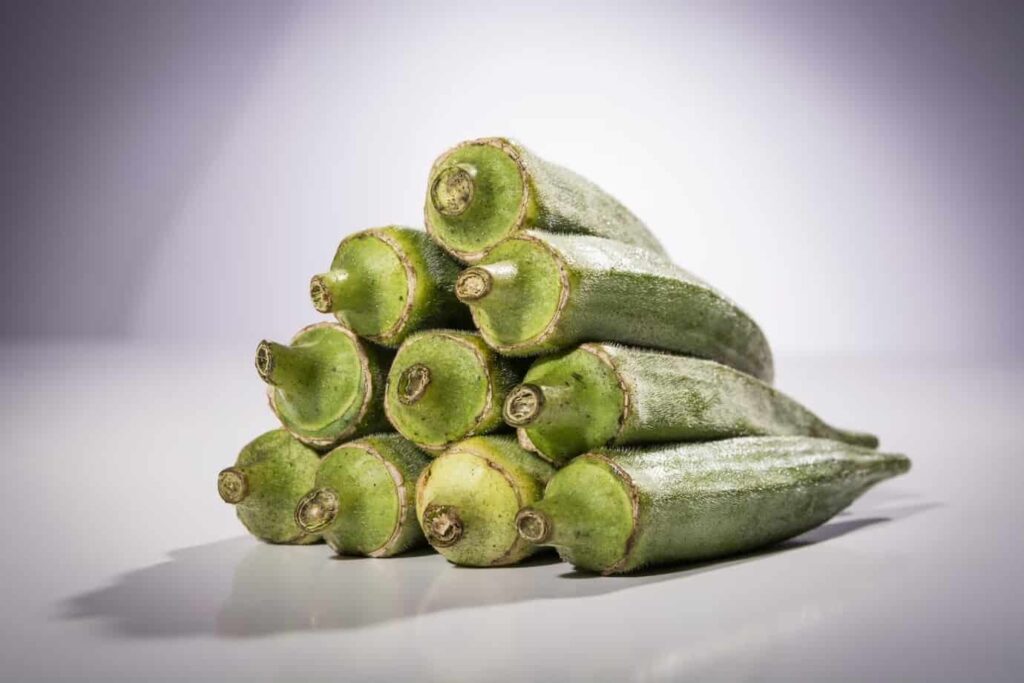Bhindi, also known as lady’s finger or okra, is a humble green vegetable that often finds its way into our daily meals. While it may not be the most glamorous vegetable on the plate, it certainly packs a nutritional punch that makes it worth including in your diet. Beyond its culinary versatility, bhindi offers a wide range of health benefits that you might not be aware of. In this comprehensive article, we’ll delve into the nutritional profile and explore the various ways bhindi can positively impact your health.
NUTRITIONAL FACTS
100 grams of bhindi contains 7.03 gram carbohydrates, 2 gram protein, 0.1 gram fat and 9% fiber. It is packed with folate, niacin, Vitamin C, Vitamin E and Vitamin K. Other than these, it is also rich in calcium, copper, iron, magnesium, manganese, phosphorous and zinc.
Bhindi at a Glance
Bhindi, scientifically known as Abelmoschus esculentus, belongs to the mallow family and is native to warm, tropical regions. It is characterized by its long, green pods, each containing numerous tiny seeds. Bhindi is a popular vegetable in many cuisines, particularly in South Asian and Mediterranean cooking. It can be prepared in various ways, such as frying, sautéing, roasting, or even pickling.
Nutritional Profile of Bhindi
Before we dive into the health benefits, let’s take a look at the impressive nutritional content of bhindi:
1. Vitamins:
- Vitamin A: Bhindi is rich in beta-carotene, which the body converts into vitamin A, essential for maintaining healthy vision, skin, and immune system.
- Vitamin C: This antioxidant vitamin is vital for immune support and skin health.
- Vitamin K: Important for blood clotting and bone health.
2. Minerals:
- Folate: Crucial for DNA synthesis and cell growth, particularly important during pregnancy.
- Calcium: Essential for strong bones and teeth.
- Potassium: Helps regulate blood pressure and muscle contractions.
3. Fiber:
- Bhindi is a good source of dietary fiber, which aids in digestion, promotes a feeling of fullness, and helps maintain stable blood sugar levels.
4. Antioxidants:
- Bhindi contains various antioxidants, including quercetin, which may help reduce oxidative stress and inflammation in the body.
5. Low in Calories and Fat:
- For those watching their weight, bhindi is a great choice as it is low in calories and virtually fat-free.
6. Rich in Mucilage:
- Bhindi is known for its mucilaginous substance, a type of soluble fiber that contributes to its unique texture and provides potential health benefits.
Health Benefits of Bhindi
Now that we’ve covered the nutritional foundation, let’s explore the myriad health benefits of including bhindi in your diet:
1. Supports Digestive Health
The high fiber content in bhindi promotes healthy digestion. The mucilage found in okra acts as a natural laxative, helping to prevent constipation. Additionally, the fiber in bhindi can support a balanced gut microbiome, which is essential for overall digestive health.
2. Regulates Blood Sugar Levels
The soluble fiber in bhindi helps slow down the absorption of sugar in the intestines, which can help stabilize blood sugar levels. This makes it a beneficial addition to the diets of individuals with diabetes or those at risk of developing the condition.
3. Aids Weight Management
With its low calorie and high fiber content, bhindi is an excellent choice for those looking to shed a few pounds. It helps control appetite and keeps you feeling full for longer periods, reducing the likelihood of overeating.
4. Heart-Healthy Benefits
Bhindi is rich in potassium, a mineral known for its role in maintaining healthy blood pressure levels. It also contains antioxidants that can reduce inflammation and lower the risk of heart disease.
5. Supports Bone Health
The combination of vitamin K and calcium in bhindi makes it beneficial for bone health. Vitamin K is essential for bone mineralization, and calcium is a building block for strong bones and teeth.
6. Boosts Immunity
Vitamins A and C in bhindi play vital roles in supporting the immune system. Vitamin A helps maintain the integrity of mucosal surfaces, including those in the respiratory and digestive tracts, while vitamin C enhances immune cell function.
7. Skin and Vision Benefits
The beta-carotene in bhindi is converted into vitamin A, which is crucial for maintaining healthy skin and vision. It can help prevent night blindness and keep your skin looking radiant.
8. Anti-Inflammatory Properties
Quercetin and other antioxidants found in bhindi have anti-inflammatory properties, potentially reducing the risk of chronic diseases associated with inflammation.
9. Pregnancy Support
The folate content in bhindi is essential for preventing neural tube defects in developing fetuses. It’s a crucial nutrient for pregnant women.
Incorporating Bhindi into Your Diet
Now that you’re aware of the numerous health benefits of bhindi, you might be wondering how to include it in your daily meals. Here are some delicious and healthy ways to enjoy this nutritious vegetable:
- Stir-Fry: Sauté bhindi with your favorite spices and vegetables for a quick and tasty side dish.
- Curries: Bhindi works well in various curry recipes, such as Bhindi Masala or Bhindi Do Pyaza.
- Grilled or Roasted: Try grilling or roasting bhindi for a crispy texture and unique flavor.
- Pickled Bhindi: Many cultures enjoy pickled bhindi, which adds a tangy twist to your meals.
- Gumbo: In Cajun and Creole cuisine, bhindi is a key ingredient in the famous gumbo dish.
- Soups and Stews: Add bhindi to your soups and stews for added flavor and nutrition.
- Okra Fries: Cut bhindi into strips, coat with a light batter, and bake or air-fry for a healthier alternative to French fries.
Potential Precautions
While bhindi offers numerous health benefits, it’s essential to be aware of potential allergies or sensitivities. Some people may experience allergic reactions to okra. If you are prone to allergies, introduce bhindi gradually into your diet and monitor your body’s response.
Conclusion
Bhindi, also known as lady’s finger or okra, is a nutritional powerhouse that provides an array of health benefits. From promoting digestive health to supporting heart health and regulating blood sugar levels, this versatile vegetable deserves a place in your regular diet. So, the next time you visit the grocery store, don’t overlook the unassuming bhindi; it might just be the key to unlocking better health and well-being for you and your family.



